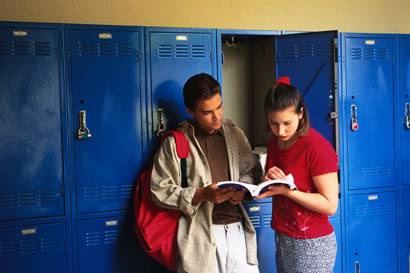| I think we can all agree that a
skilled trade, a college diploma or a university degree can open doors
that are closed to many people who choose to stop their formal education
at high school.
Because of this, there is growing pressure
being place on schools and government to remove financial and other
barriers to disadvantaged youth who want to pursue post-secondary
schooling.
 But
a new study offers another compelling reason to promote higher education
among groups now under-represented at colleges and universities, including
students from low-income families, those whose parents do not have
post-secondary qualifications and aboriginals. But
a new study offers another compelling reason to promote higher education
among groups now under-represented at colleges and universities, including
students from low-income families, those whose parents do not have
post-secondary qualifications and aboriginals.
The Canada Millennium Scholarship Foundation
produced a report titled Why Access Matters. In the report it is
stated that more and more jobs require advanced credentials.
However, as older workers retire and the population of young adults
shrinks, the pool of skilled workers will not keep up with demand unless
more students stay in school longer.
Yet post-secondary participation rates among
young people from middle- and high-income families are already
"fairly high." That means
Canada
must boost enrolment among other
socio-economic groups in order to stay competitive.
It is not surprising to find that young
people from low-income families are less likely than their higher-income
peers to pursue post-secondary education. The numbers are especially
discouraging among youth whose parents did not continue their education
past high school. Aboriginals are also under-represented in post-secondary
institutions.
In order to increase the participation rate
of the under-represented groups, it is recommended that we take time to
make sure that all young people understand the benefits of continuing
their education and that they know their options with respect to returning
to school if they do drop out.
For students who do go on to post-secondary
institutions, we must better prepare them for the academic demands that
they will be facing. At the present time the drop-out rate during the
first and second years of post-secondary study is unacceptable. Students
must be given every chance to succeed.
Finally, money and the burden of huge debts
should not deter under-represented youth from continuing their studies. As
tuition for many programs rises, schools and governments should ensure
grants and loans are more readily available so all qualified students can
attend.
|